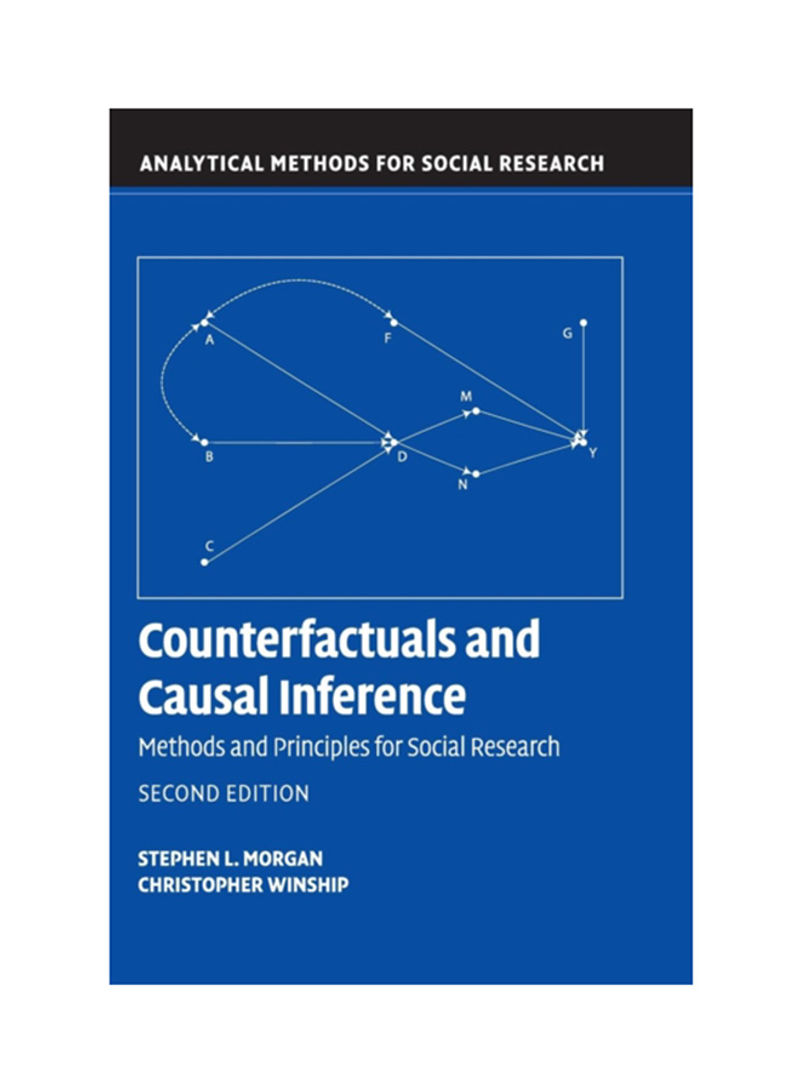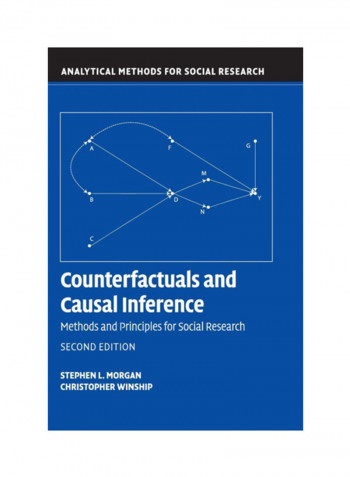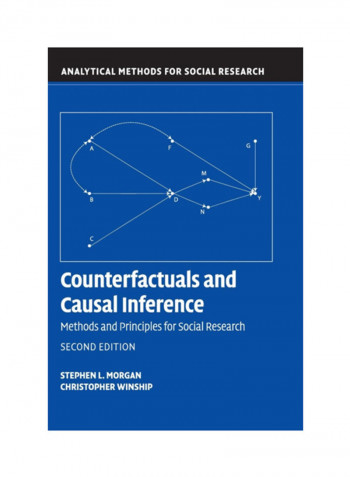Counterfactuals And Causal Inference Hardcover 2
Recommend
Sort by
Rating
Date
Specifications
Grade
New
Author 1
Stephen L. Morgan
Book Description
In this second edition of Counterfactuals and Causal Inference, completely revised and expanded, the essential features of the counterfactual approach to observational data analysis are presented with examples from the social, demographic, and health sciences. Alternative estimation techniques are first introduced using both the potential outcome model and causal graphs; after which, conditioning techniques, such as matching and regression, are presented from a potential outcomes perspective. For research scenarios in which important determinants of causal exposure are unobserved, alternative techniques, such as instrumental variable estimators, longitudinal methods, and estimation via causal mechanisms, are then presented. The importance of causal effect heterogeneity is stressed throughout the book, and the need for deep causal explanation via mechanisms is discussed.
ISBN-13
9781107065079
Language
English
Publisher
Cambridge University Press
Publication Date
12 Jan 2015
Number of Pages
524
About the Author
Stephen L. Morgan is the Bloomberg Distinguished Professor of Sociology and Education at Johns Hopkins University. He was previously the Jan Rock Zubrow '77 Professor in the Social Sciences and the director of the Center for the Study of Inequality at Cornell University. His current areas of interest include social stratification, the sociology of education, and quantitative methodology. He has published On the Edge of Commitment: Educational Attainment and Race in the United States (2005) and, as editor, the Handbook of Causal Analysis for Social Research (2013). Christopher Winship is the Diker-Tishman Professor of Sociology and member of the senior faculty of Harvard's Kennedy School of Government. Prior to coming to Harvard in 1992, he was Professor of Sociology and Statistics and by courtesy Economics at Northwestern University. His research focuses on statistical models for causal inference - most recently mechanisms and endogenous selection; how black clergy in Boston have worked with police to reduce youth violence; the effects of education on mental ability; pragmatism as the basis for a theory of action; the implications of advances in cognitive psychology for sociology; sociological approaches to how individuals understand justice. Since 1995 he has been editor of Sociological Methods and Research.
Author 2
Christopher Winship
Edition Number
2
Editorial Review
The use of counterfactuals for causal inference has brought clarity to our reasoning about causality. And this second edition by Morgan and Winship will bring clarity to anyone trying to learn about the field. It is an excellent introduction to the topic, and a fine place to begin learning causal inference.' Tyler J. VanderWeele, Harvard University, Massachusetts 'This improved edition of Morgan and Winship's book elevates traditional social sciences, including economics, education and political science, from a hopeless flirtation with regression to a solid science of causal interpretation, based on two foundational pillars: counterfactuals and causal graphs. A must for anyone seeking an understanding of the modern tools of causal analysis, and a must for anyone expecting science to secure explanations, not merely descriptions.' Judea Pearl, University of California, Los Angeles 'More has been learned about causal inference in the last few decades than the sum total of everything that had been learned about it in all prior recorded history. The first comprehensive survey of the modern causal inference literature was the first edition of Morgan and Winship. Now with the second edition of this successful book comes the most up-to-date treatment.' Gary King, Harvard University, Massachusetts 'The second edition of Counterfactuals and Causal Inference should be part of the personal library of any social scientist who is engaged in quantitative research. For those with a copy of the first edition, purchase of the second edition is indeed well worth the investment.' Peter Messeri, Canadian Studies in Population



